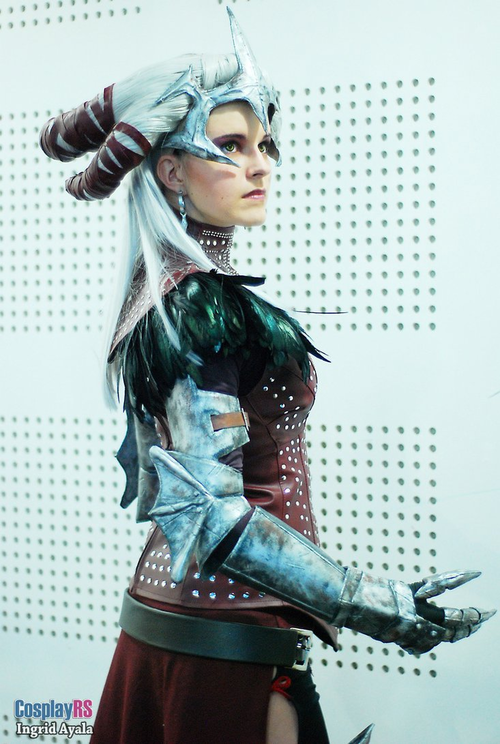Fuse Teppo Musume no Torimonocho seems to be called either Fuse: Memoirs of the Hunter Girl or Fuse: A Gun Girl’s Detective Story in English. I think Hunter Girl fits better.
Fuse by Masayuki Miyaji is a blend of fantasy and Japan history. There’s plenty of action here; samurai warriors and werewolves, with rooftop chases and mercenary ronin. That said; hunter girl is all about accepting who you really are.
The anime starts off as a fish out of water drama. The hunter girl, Hamaji, leaves her mountain home to join her brother in Edo, a large, sprawling and cosmopolitan place. Her brother turns out to be living in a shanty town on the outskirts of the great city and has come up with a cunning plan to use his sisters aptitude for hunting to track down a werewolf or two and claim the bounty.
There’s some really nice mythology around these werewolves, some of which is explained later, but the concept behind the name is introduced early. In Hunter girl these creatures are called “Fuse” which is written as the symbol for dog drawn before the symbol for man. They are a fusion of man and animal spirit, of man and animal body.
One of my favourite characters is introduced right after a dramatic action event; she’d been hiding in the corner with what looks like a chest of drawers strapped to her back. It’s actually a writing desk.
This scribe is more than just a helpful viewpoint into the action, someone to help explain what’s going on, but also a nod to the literature that Fuse pays respect to.
There are plenty of scenes in Fuse: Memoirs of the Hunter Girl that pay homage to a particular form of Japanese literature. Some are clear, some in your face but some are hidden away almost like Easter Eggs. I claim no special knowledge on the subject of Japanese literature but thanks to the few ‘in your face’ samples, you’re alerted to what’s going on and then spotting the other references becomes quite fun.
I’m a sucker for a good supernatural fantasy at the best of times. Make it and urban, historic, Japanese supernatural fantasy and you’ve got something special.
The strength in the anime isn’t really in the clever interweaving of genres, or of mixing fact with fiction, it is with the storytelling. Fuse: Memoirs of the Hunter Girl gets the pace exactly right and with that tempo carries you through several sub-stories before you know it.
You go from the fish out of water introduction, to action, to romance, to history, to action again and finally to the ultimate message of learning to accept who you are (and perhaps the importance of literacy skills). There are some clues in the storytelling when the tempo is about to carry you on to to next chapter; watch for the dramatic 180 degree ‘camera angle’ the swing.
I enjoyed Fuse: Memoirs of the Hunter Girl. It strikes me as an anime almost anyone will like; especially those snobs who tend to turn their nose up at the idea of animation as being an advanced form of storytelling.



